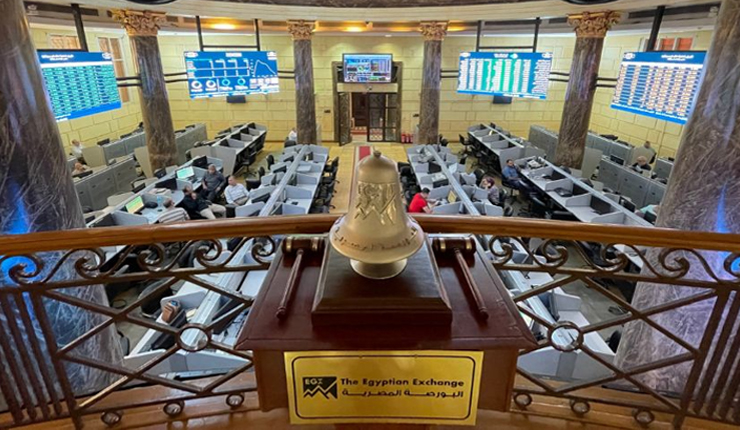Wheat, corn, and sugar, three of the most essential ingredients for nutrition, are no longer traded in Egypt.
The Egyptian Mercantile Exchange (EMX), an institution for regulating trading operations and transactions in commodity markets, was established in January 2020 through a collaboration between the Egyptian Exchange, the Internal Trade Development Authority, and the General Authority for Supply Commodities.
Trade of sugar, wheat, and corn, three key commodities, has been stopped for approximately two months, amidst market volatility and volatile pricing practices.
Over the past two months, Egyptian markets have witnessed erratic pricing, due to the shortage of hard currency for importers, following an increase in the value of the Egyptian pound in the parallel market. This eventually prompted some sectors to price and sell their products in dollars, such as iron, fertilizers, and animal feed.
The deputy head of the Chamber of Grain Production at the Federation of Egyptian Industries, Abdul-Ghaffar El-Salamouni, stated, “The decision to suspend trading on wheat in the EMX aims to control the market and protect consumers, as some mills are overpricing flour products.”
According to Egypt’s Minister of Supply and Internal Trade, Ali El-Sayed Ali El-Moselhi, trading was put to a halt due to “speculative business and exaggerated prices for the wheat commodity,” which will be reintroduced once the situation stabilizes.
The last trading session of sugar took place on 14 December of last year, and the last corn trading session was 11 days later on 25 December, while wheat trading has been suspended since 21 January.
The temporary trading suspension is expected to persist for some time, described by some as a “disciplinary measure against speculative traders,” according to an anonymous source.
The Chairman of the Board of Directors of the Egyptian Mercantile Exchange, Ibrahim Ashmawy, stated, “The total trading volume was approximately 1.5 million tons across nine different commodities, amounting to around 19 billion Egyptian pounds.”
“Some traders aim to transform EMX into an auction platform for strategic commodities,” an official at EMX reported anonymously. “With wheat prices reaching 22,000 Egyptian pounds per ton, far exceeding the exchange’s prices which do not exceed 14,000 Egyptian pounds per ton.”
Egypt seeks to address the crisis of rising sugar prices and its scarcity by injecting additional quantities into the market and contracting for more imports of this vital commodity. The government periodically monitors and analyzes the market to ensure sales at specified prices, adding that the reintroduction of sugar trading on EMX would increase its supply at reduced prices, which would undoubtedly impact price reduction in markets.
Sugar prices in Egypt have surged by over 50 percent in the past two months, exceeding 55 Egyptian pounds per kilogram in markets. Some traders have resorted to stockpiling the commodity amid expectations of government price hikes, while government-affiliated grocery stores sell it for 27 Egyptian pounds (0.87 USD) per kilogram, resulting in long queues of Egyptians seeking to purchase it.
Three major anonymous traders in the sugar market had already speculated that the suspension of commodity trading was due to speculation or price bidding. They confirmed their adherence to government-set prices, stating that they signed agreements and declarations to sell at the prices specified by the Ministry of Supply and Internal Trade.
Egypt’s sugar production reaches 2.8 million tons annually, while consumption surpasses it at 3.2 million tons. The government covers the deficit through imports in cooperation with the private sector.
The director of Egypt’s Consumer Protection Agency, Ibrahim Al-Sagheeny, stressed that the perceived sugar crisis within the nation was manufactured and that there was no sugar crisis.
He highlighted that the market’s turmoil could not be attributed to factors such as importation, inadequate supply, or currency exchange rates, instead placing the blame on what he described as “exploitative practices by traders.”
“With the Holy month approaching, Egyptians’ worries about the prices are justifiable, especially with the expected increase in demand for goods before Ramadan”, according to Mohamed Al-Homsani, the official spokesperson of the Egyptian Cabinet.
Al-Homsani emphasizes, easing everyone’s mind, that the government is working relentlessly on controlling prices, particularly regarding essential and strategic commodities.






Comments (0)